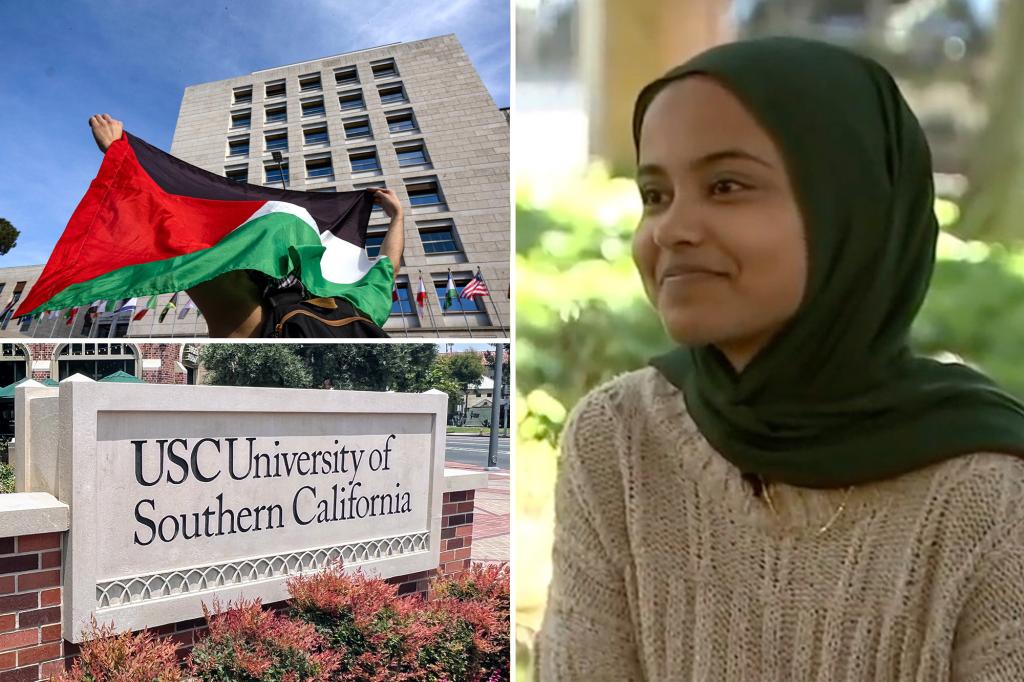The valedictorian of the University of Southern California, Asna Tabassum, was prevented from delivering a commencement speech after being accused of promoting antisemitic rhetoric. Despite this backlash, Tabassum has stood by her views and stated that they align with the values and lessons she learned at USC. The biomedical engineering major with an impressive 3.98 grade point average was accused of promoting anti-Semitic and anti-Zionist rhetoric, leading to her ban from speaking at the ceremony.
After Tabassum’s speech was shelved due to security concerns, university officials reversed their decision. The decision came after complaints from various groups both on and off campus who accused Tabassum of openly promoting antisemitic writings. Tabassum expressed feelings of instability and a roller coaster of emotions in response to the sudden snub, as she believed her voice was being silenced due to disagreement with her views. Despite minoring in resistance to genocide, Tabassum was penalized for speaking out on issues related to genocide.
Andrew Guzman, the provost and senior vice president for academic affairs at USC, stated that allowing Tabassum to address her fellow graduates would pose substantial security risks. Guzman cited the intense feelings and ongoing conflict in the Middle East, which had led to concerns about security and potential disruption at the commencement ceremony. Trojans for Israel Vice President Ella Echo objected to Tabassum’s planned speech, accusing her of calling for the abolishment of the state of Israel, which she deemed anti-Semitic and threatening to Jewish students at USC. Guzman maintained that the decision was necessary to ensure the safety of the campus and students.
Colleges and schools across the US were impacted by Israel’s conflict with Hamas, resulting in increased tensions and debates about free speech and expression. The terror group’s attack on October 7th intensified antisemitism and heightened support for Palestine among students and teachers. The situation created challenges for universities as they navigated the delicate balance between protecting free speech and maintaining campus safety. Tabassum’s case highlighted the complexities of addressing controversial topics and the need to balance differing perspectives while upholding the principles of free speech on college campuses. Ultimately, the incident at USC served as a reflection of larger societal issues surrounding freedom of expression and the consequences of expressing views that are deemed controversial or divisive.


